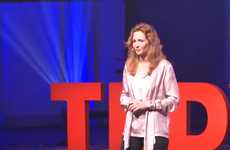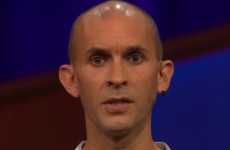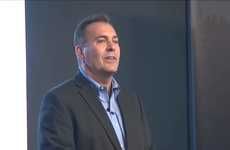
Need Inspiration?
Get inspired by 4,000+ keynote speaker videos & our founder, a top keynote speaker on innovation.
Raymond Tang's Talk on Humbleness Considers Philosophy
Riley von Niessen — March 23, 2018 — Keynote Trends
Raymond Tang, an IT manager that aims to build connections in the world by applying some of his learnings from ancient Chinese philosophy, begins his talk on humbleness by considering some of the feelings so many people have in a busy, stressful, and production-focused lifestyle. Tang explains that he found himself feeling constantly anxious and stressed just a few years ago. Due to this, he turned to self-help books, but he found this just caused his anxiety to rise. Eventually, he turned to a book called 'Philosophy of Water' that contained ancient Chinese poems, which he was able to truly connect with.
From here, Tang outlines some of the key lessons from his readings that have helped him so thoroughly. The first lesson is humility, which connects to water in that the element tends to run low, nourishing what is around it, but doesn't draw any attention to itself. This lesson taught Tang to promote the success and glory of others, rather than focusing on himself. In addition to stressing less over how to present himself, Tang found his life enriched by the stories and experiences of others, which caused him to be a happier person.
The second lesson Tang describes is harmony, and he explains it by considering how water flows around rocks, finding a simple and peaceful solution to its obstacles. Tang applied this to his life by saying that he changed his work habits, by becoming more aware of how he was constantly working against his environment. This only caused him to become more frustrated, despite the fact that he was constantly trying to succeed. Realizing this allowed Tang to focus on his happiness, rather than becoming the person he thought he should be.
The third lesson is about openness, and it is linked back to water as the element is always open to change, it can be heated, cooled, solid, or gas. As the world is constantly subject to change, Tans says that it's vital to constantly refresh and reinvent.
Tang summarizes by saying that these three lessons have become his guiding principles in life, and he finds it helpful to constantly ask himself "What would water do?" in times of stress.
From here, Tang outlines some of the key lessons from his readings that have helped him so thoroughly. The first lesson is humility, which connects to water in that the element tends to run low, nourishing what is around it, but doesn't draw any attention to itself. This lesson taught Tang to promote the success and glory of others, rather than focusing on himself. In addition to stressing less over how to present himself, Tang found his life enriched by the stories and experiences of others, which caused him to be a happier person.
The second lesson Tang describes is harmony, and he explains it by considering how water flows around rocks, finding a simple and peaceful solution to its obstacles. Tang applied this to his life by saying that he changed his work habits, by becoming more aware of how he was constantly working against his environment. This only caused him to become more frustrated, despite the fact that he was constantly trying to succeed. Realizing this allowed Tang to focus on his happiness, rather than becoming the person he thought he should be.
The third lesson is about openness, and it is linked back to water as the element is always open to change, it can be heated, cooled, solid, or gas. As the world is constantly subject to change, Tans says that it's vital to constantly refresh and reinvent.
Tang summarizes by saying that these three lessons have become his guiding principles in life, and he finds it helpful to constantly ask himself "What would water do?" in times of stress.
5.8
Score
Popularity
Activity
Freshness
















